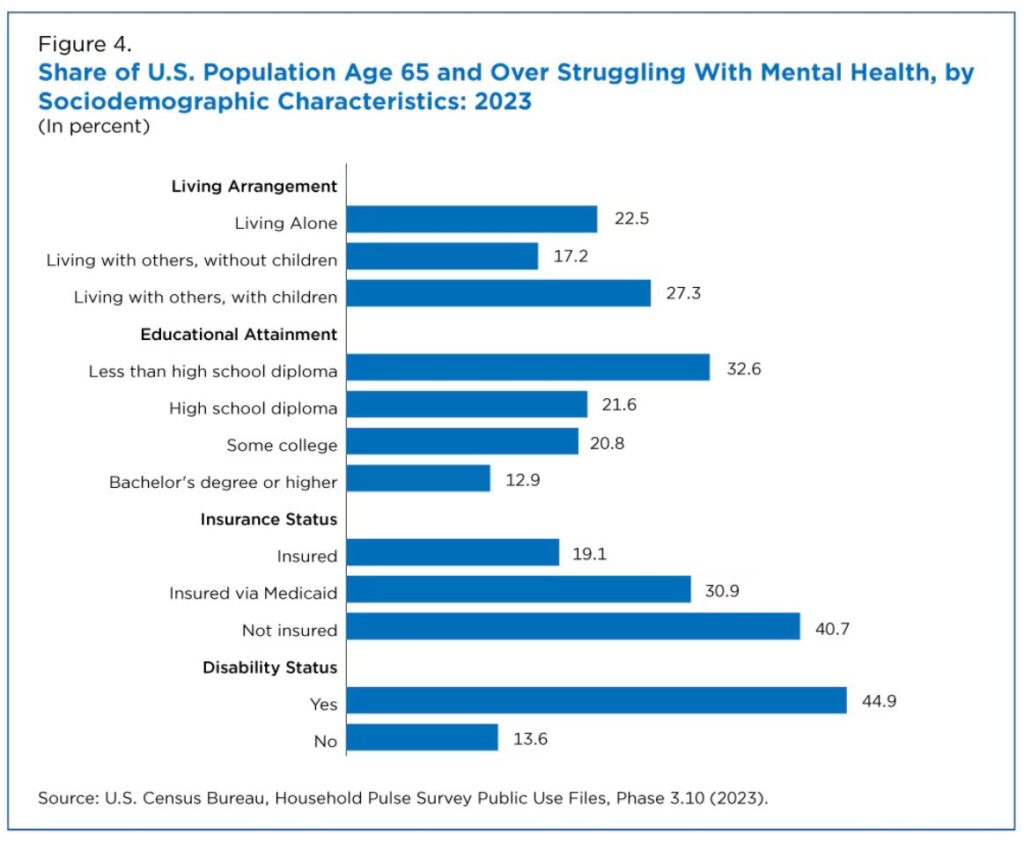Older adults experienced fewer mental health challenges than younger adults during the COVID-19 pandemic but new research shows anxiety and depression levels among those 65 and older varied depending on their demographic characteristics and economic well-being.
By the numbers: Older women were more likely than older men to struggle with mental health, according to an analysis of the U.S. Census Bureau’s Household Pulse Survey.
- In line with past research on the population as a whole, the living arrangements of older people continued to make a difference in reported symptoms of mental health struggle.
- When surveyed in 2023, older adults living with other adults but without children in the home (17.2 percent) fared better than those living by themselves (22.5 percent) or with others including children (27.3 percent).
Go deeper: Older adults who reported food insufficiency were also more likely to report symptoms of mental health struggle (34.2 percent) than those who had enough food (11.2 percent).
Similarly, those who struggled with paying basic household expenses were more likely to experience mental health challenges (28.2 percent) than those who did not struggle (7.8 percent), according to the Census Bureau.

